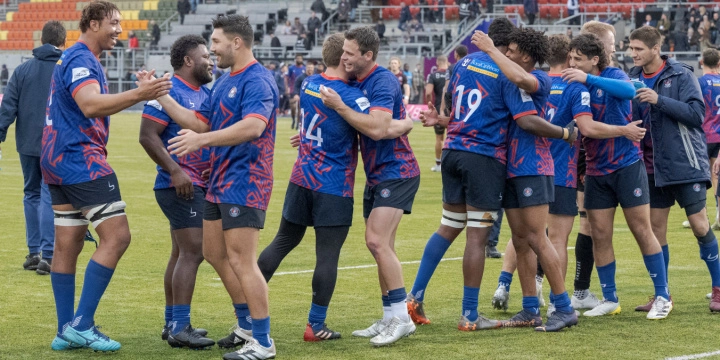World Rugby said it is was ‘satisfied’ with South African Rugby explanation that disinvitation of Israeli team ‘based on concerns about an increased safety and security threat.’
By Shiryn Ghermezian, The Algemeiner
The international governing body for rugby, World Rugby, ruled that the South African Rugby Union’s (SARU) move to disinvite the Israeli team Tel Aviv Heat from a competition last month was not discriminatory, and the decision is not sitting well with the team’s leadership and its lawyers.
“World Rugby is satisfied with the explanation provided by SA Rugby that the decision to withdraw the invitation to Tel Aviv Heat to participate in the Mzansi Challenge was based on concerns about an increased safety and security threat including the potential threats of violence, disruption and risks to the safety of stakeholders,” World Rugby wrote in a March 29 letter obtained by The Algemeiner.
World Rugby said that after investigating the matter, it believes SARU’s decision to disinvite Tel Aviv Heat was done in response to threats of violence made by the public because an Israeli team was expected to come to South Africa. The governing body highlighted a Facebook post that warned of a “blood bath” at the tournament, and threatening messages by South African BDS Coalition regarding Israel’s participation in the Mzansi Challenge.
The organization added that it “has not received any evidence” supporting claims that SARU’s move against the Tel Aviv Heat was discriminatory, no charges would be issued against SA Rugby “and the matter is considered closed by World Rugby.”
The ruling, however, was met with outrage, with lawyers and management for the Israeli team alleging clear discrimination.
“It has been both confusing and disappointing to have the Tel Aviv Heat blocked from playing rugby by elements who espouse hatred, who threatened violence and who labeled us an ‘apartheid team’ despite all the evidence to the contrary,” Tel Aviv Heat CEO Pete Sickle told The Algemeiner. “We expected SARU to stand up against these elements and honor their invitation to the Heat to participate in the Mzansi Challenge.”
“Despite multiple requests, we still have not received any specific examples of credible threats nor any evidence of attempts to prevent, contain, or mitigate them, including investigations or legal actions aimed at their sources,” Sickle added. “Unfortunately, World Rugby decided not to launch a more thorough investigation that would have provided greater transparency and accountability for SARU’s decision making process. In the end, the whole episode raises serious questions about South Africa’s capacity to host international sporting events.”
Arthur Traldi, one of the attorneys at the Louis D. Brandeis Center for Human Rights Under Law representing the Heat, said to The Algemeiner: “If the Heat were based in another country, they would be playing in the Challenge right now. WRU must take that seriously and ensure everyone can compete on an equal footing.”
The situation began almost two months earlier, on Feb. 3, when SARU announced that it revoked its invitation to have Tel Aviv Heat compete in the Mzansi Challenge “to avoid the likelihood of the competition becoming a source of division.” SARU made its decision after facing pressure from supporters of the boycott, divestment and sanctions movement against Israel, who said the South African union “will have blood on its hands” if it allowed the “apartheid Israeli team” to compete in the Mzansi Challenge. The tournament began March 24, is still ongoing and Tel Aviv Heat was replaced with the California-based San Clemente Rhinos.
The Louis D. Brandeis Center for Human Rights Under Law and the Israel Rugby Union both sent separate letters to World Rugby, alleged discrimination against Tel Aviv Heat and asking for the team to be reinstated in the Mzansi Challenge.
Relations between Israel and South Africa have been strained for years. Ironically enough, majority of the players in Tel Aviv Heat that were set to compete in the Mzanzi Challenge were of South African descent and the team’s Jewish coach, Kevin Musikanth, was born in South Africa. The team includes athletes from all ethnicities and religious backgrounds.
Musikanth, who has been a professional coach for 22 years, said he was dismayed by World Rugby’s ruling.
“The principles of World Rugby are around inclusivity, bringing bridges, breaking barriers and diverse culture,” Musikanth told The Algemeiner. “So it’s hard for me to understand the discrimination parts creeping in. And also being a South African … it’s just sad that it’s come to a point where it’s politicized. I’m disappointed that we weren’t able to participate in a competition that was made political … The loss of opportunity, the loss of earning, the loss of participation — it’s extremely disappointing.”
